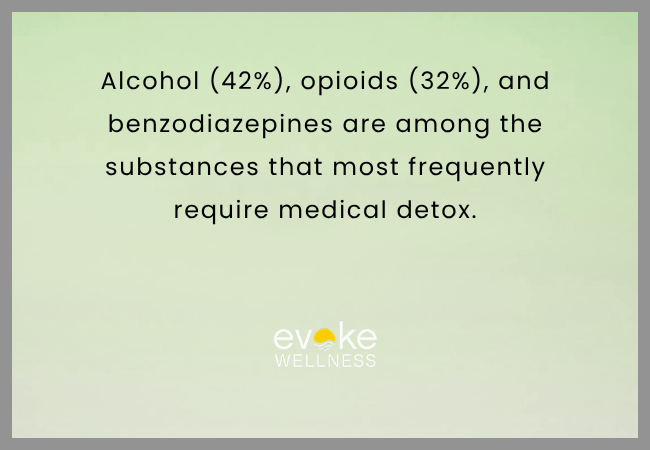Deciding to enter detox is one of the most courageous steps a person can take toward reclaiming their life. It signifies the beginning of a journey toward healing from the physical, emotional, and psychological chains of addiction. While detoxification is often the first stage in recovery, how one approaches this process can make a substantial difference in its outcome. Being prepared—both mentally and practically—can help ease the discomfort of withdrawal and lay a solid foundation for what comes next.
Detox is not a punishment or a test of willpower. It is a medically guided process that helps the body safely eliminate substances like drugs and alcohol. It allows individuals to stabilize physically before engaging in the deeper therapeutic work necessary for lasting change. But because the experience can be unfamiliar and challenging, knowing what to expect and how to prepare can reduce fear and increase confidence.
Understanding the Detox Experience
Detox begins when a person stops using a substance on which their body has become dependent. This may include alcohol, opioids, benzodiazepines, stimulants, or other drugs. Once the substance is no longer present, the brain and body react—sometimes mildly, sometimes severely—depending on the type of substance, length of use, quantity used, and individual health factors.
Withdrawal symptoms can range from discomfort to medical emergency. Common symptoms include anxiety, irritability, restlessness, insomnia, nausea, shaking, sweating, and in some cases, seizures or hallucinations. These effects are not just physical—they often include emotional volatility and mental fog. This is why medical supervision is essential to ensure safety and comfort throughout the process.
One of the most misunderstood aspects of detox is that it doesn’t treat addiction; it treats dependence. Detox clears the body of substances, but it does not resolve the reasons behind use. That’s why it’s important to view detox not as the full solution, but as the first step in a longer continuum of care.
What to Bring with You
When entering a detox center, packing with intention matters. The goal is not to bring your entire life with you, but rather the essentials that will make your stay comfortable while reducing distractions. Most treatment facilities have strict guidelines about what is allowed, so it’s wise to check beforehand. However, the general rule is to keep it simple, respectful, and practical.
Clothing: Choose comfortable, modest clothing suitable for lounging and resting. Pack sweatpants, loose shirts, underwear, socks, and a light jacket. Shoes should be easy to put on and remove, such as slip-ons or sneakers.
Personal Hygiene: Bring alcohol-free toiletries like toothpaste, a toothbrush, deodorant, shampoo, conditioner, and a hairbrush. Avoid bringing anything in aerosol cans or glass bottles.
Documentation: Bring identification, insurance information, and a list of any current medications with dosage instructions. This helps staff create a treatment plan tailored to your needs.
Other Items: Journals, books, and photos of loved ones can provide comfort. Some facilities allow limited access to notebooks or non-digital entertainment. Leave behind electronics, valuables, and any items with offensive or triggering content.
Packing light reduces anxiety. Detox is a time to focus inward. The fewer distractions you have, the easier it is to process your experience and begin healing.
Preparing Mentally and Emotionally
While many people think about detox in terms of physical discomfort, the emotional and mental preparation is just as important. It’s natural to feel fear, hesitation, or sadness before detox. You’re stepping into unfamiliar territory and giving up something that’s been part of your coping system. Acknowledging those feelings is part of the process.
Consider writing a letter to yourself before you enter treatment. Include your reasons for seeking recovery, your hopes for the future, and words of encouragement for when things get difficult. This letter can be a powerful reminder when doubt creeps in.
Let trusted family members or friends know where you’re going. Having a support system can make a difference, even if communication is limited during detox. If you’re comfortable, speak with your employer or arrange medical leave if needed. Managing responsibilities in advance can ease your mind and help you remain focused on your recovery.
The Importance of Environment
The setting in which you undergo detox matters. A supportive, well-equipped environment ensures safety and dignity throughout the experience. Choosing a facility with licensed medical professionals, compassionate staff, and a calm, therapeutic atmosphere can transform the detox experience from frightening to empowering.
Many individuals benefit from the kind of comfort and privacy found at a luxury rehab center Massachusetts residents trust for premium care. These centers often provide more than just clinical support; they offer nurturing amenities, wellness services, and personalized attention, which can be especially comforting during the early stages of recovery.
Regardless of the setting, what matters most is the level of care and your willingness to engage with the process. Whether you choose a community program or a high-end facility, your commitment will define your experience.
Detox and Mental Health
Addiction rarely exists in isolation. Many people entering detox also live with depression, anxiety, PTSD, or trauma-related symptoms. These co-occurring conditions can intensify withdrawal and make detox more emotionally complex. It’s important to choose a program that addresses both the physical and psychological aspects of recovery.
A facility that also functions as a mental health treatment center in Massachusetts can offer the integrated care needed to address both addiction and mental health. This dual-focus ensures that you’re not only detoxing from substances but also beginning to understand and work through the mental health challenges that may have contributed to or resulted from substance use.
During detox, you may be introduced to therapists or counselors who can provide initial support. While the bulk of therapy often begins after detox, starting the conversation early helps normalize emotional healing as part of the recovery journey.
What Comes After Detox
While detox is necessary, it is not sufficient on its own for long-term recovery. As your body stabilizes and your mind becomes clearer, the focus naturally shifts to what comes next. Making a plan for continued care is vital to maintaining progress.
Most individuals transition from detox into an intensive inpatient program in Massachusetts, where they engage in comprehensive therapy, education, and support. Inpatient care provides structure and community, both of which are crucial in early recovery. It also creates distance from triggers and enables deep healing before returning to everyday life.
Another common path after detox is outpatient treatment or sober living, depending on the individual’s stability, support network, and home environment. Case managers and clinicians at the detox center can help you explore your options and develop a plan that aligns with your needs and goals.
Having completed detox, you’ve already proven you can do something hard. Continuing into treatment extends that commitment and builds on the foundation you’ve laid.
The Value of Medically Supervised Care
Some people attempt to detox at home, believing it will be cheaper or easier. However, unsupervised detox can be extremely dangerous. Withdrawal symptoms from alcohol, opioids, and benzodiazepines can be life-threatening without medical support.
Participating in professionally guided medical detox programs in Massachusetts ensures you receive 24/7 monitoring, medication to ease symptoms, and access to emergency care if needed. These programs prioritize your safety, reduce unnecessary suffering, and set the stage for a more successful recovery.
It’s not just about getting through withdrawal—it’s about doing so with care, compassion, and clinical support that respects your dignity.
Why Professional Detox Matters
Substance use disorder affects every part of a person’s life—from relationships and self-esteem to work, health, and future goals. Detox provides a reset. But more than that, it signals a new direction. When you choose to enter a drug and alcohol detox in Massachusetts, you are choosing hope over fear and possibility over stagnation.
You don’t have to go through this alone. Whether this is your first time in treatment or another attempt after relapse, each experience is an opportunity to move closer to healing.
Conclusion
Preparing for detox isn’t just about what you pack—it’s about your mindset, your support system, and your belief that life can be better. The process may be challenging, but it is also transformative. Detox clears the way for clarity, stability, and strength. It’s where recovery begins.
If you’re considering this step, know that you are not alone. Facilities across Massachusetts are ready to support you with personalized, compassionate care. From clinically sound protocols to the comforts of a trusted treatment environment, your journey toward recovery can begin with the right foundation. If you’re ready to take that first step, call 866-931-6429 to speak with someone who understands. Your healing starts now.
Frequently Asked Questions (FAQs)
What should I bring to a detox center?
Bring comfortable clothing, personal hygiene items, identification, insurance info, and any prescribed medications. Avoid valuables and electronics unless allowed.
How long does detox usually last?
Detox duration varies by substance and individual, typically lasting from a few days to one week, under medical supervision.
Will I experience withdrawal symptoms during detox?
Yes, withdrawal symptoms are common and can range from mild to severe. Medical detox programs manage these symptoms safely.
Is detox enough to treat addiction?
No, detox clears substances from the body but is only the first step. Continued treatment like therapy and rehab is necessary for lasting recovery.
Can I have visitors during detox?
Policies vary by facility, but many detox centers limit visitors to maintain a safe and focused environment.





